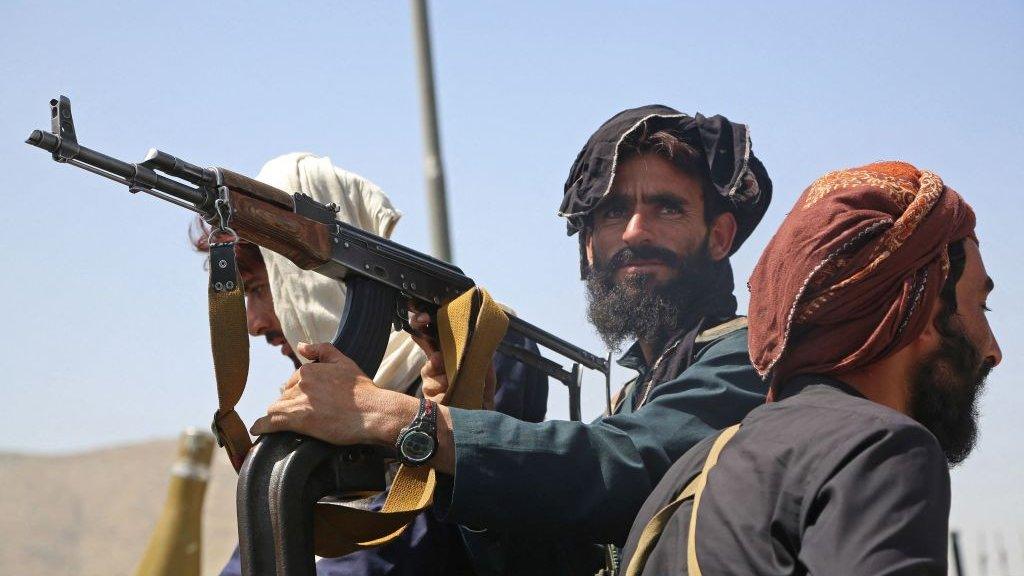'There’s security but no money': Afghans settle into life under Taliban rule
- Published
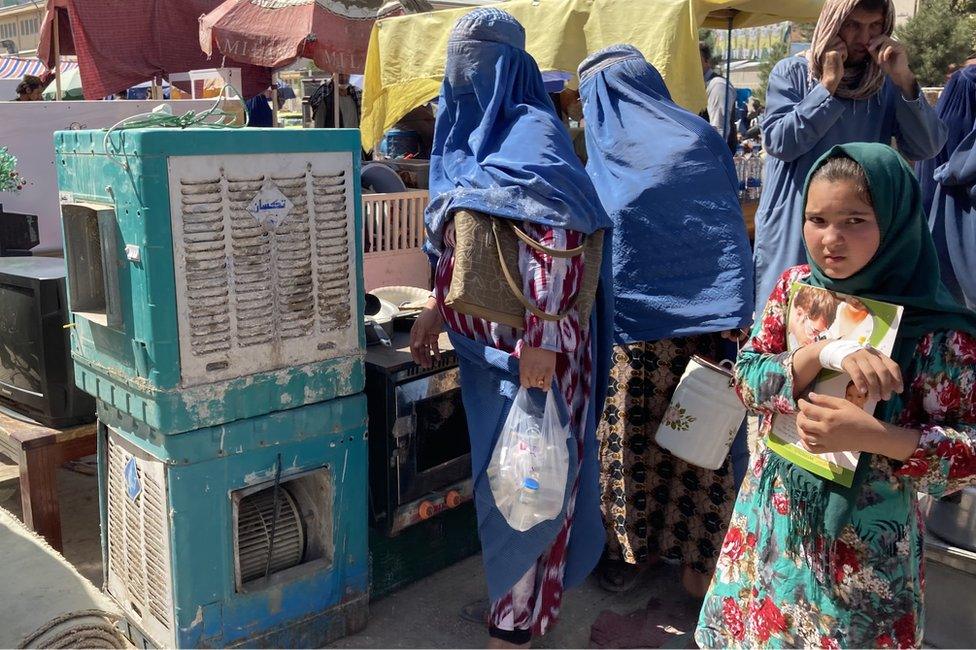
A girl at second hand market in Mazar-i-Sharif in Afghanistan. Some Afghans have been forced to sell their belongings to make ends meet
At Balkh airfield in Mazar-i-Sharif, northern Afghanistan, Taliban fighters excitedly snap photos of a Russian-made MI-17 helicopter touching down.
On board are senior Taliban officials. Sitting in the cockpit are their former enemies: pilots from the old Afghan air force.
Maulvi Abdullah Mansour, the Taliban commander in charge of the airfield, shows me round the fleet he now controls. It includes attack helicopters and fighter planes, gifted to the previous government by international forces.
Under the old government, the aircraft were often used to target the group. It's not clear how they will be used now that the war is over. "If we ever need them in the future, they are here," Mansour says.
As the Taliban advanced across Afghanistan ahead of its August victory, dozens of pilots fled the country in fear of their lives, taking their aircraft with them. But others stayed on and now work under the leadership of the Taliban, reassured, it appears, by assurances of an amnesty.
I ask Maulvi Mansour how it feels to now be working alongside men he was once fighting against. "We always knew in our hearts that we would conquer and liberate the country," he says, "but we also knew that one morning we would sit down and work together because they are our countrymen."
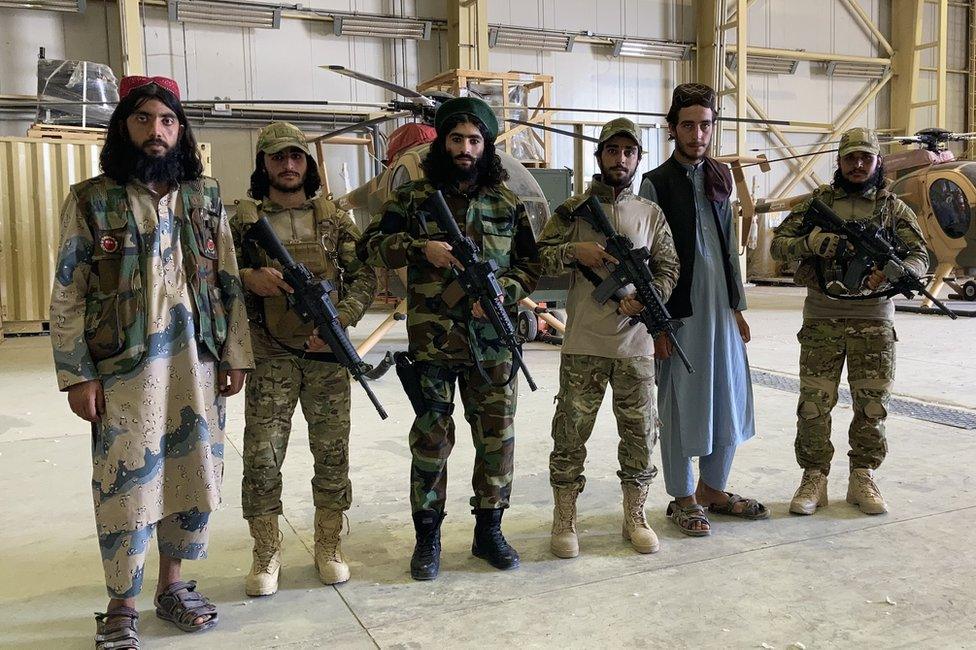
Taliban fighters pose in front of former army helicopters at Balkh airfield.
Sitting next to him is Gul Rahman, a helicopter pilot. He appears cautious in his answers, insisting that once he heard about the Taliban's amnesty he was never afraid of returning to work.
"It was inevitable this would happen one day," he says, "we never thought we could continue on our separate paths forever … We will leave the politics to the politicians and work together to develop the country."
Younger Taliban fighters mill around us in the hangar, looking on with curiosity at two MD-530 helicopters. Signs of a degree of underlying tension are visible as one of the Talibs quizzes a mechanic about his qualifications. "You all got these jobs through personal connections, not because you're properly qualified," he says in an accusing tone. Nevertheless, overall the atmosphere seems amicable.

PROFILES: Who's who in the Taliban leadership
INVESTIGATION: Taliban kill civilians in resistance stronghold

Elsewhere, the transition from old to new regime is going less smoothly. The country is facing an economic crisis, with foreign reserves frozen as the international community decides how to help Afghans but not the Taliban. There are restrictions on cash withdrawals and long queues at banks. Second-hand markets have sprung up in cities across the country, with desperate Afghans trying to sell their possessions just to be able to afford enough to eat.
One woman, Shagufta, is sat on the roadside, rifling through the clothes she's brought to sell. "Life has become an insult now, we are dying slowly," she tells us tearfully. She's weak because she didn't have any food for breakfast, or for dinner the night before. "Everything I had I gave to my children," she says, "now I am selling their finest clothes, what they used to wear to weddings … If I get a good price I will buy oil, rice and flour."
Her story epitomises the deep-rooted inequalities in the country. Her husband retired from the police six years ago, but barely ever received his pension under the previous government. The family was just about able to cope as Shagufta worked washing and stitching clothes in her neighbourhood. With increased financial pressure though, even that work dried up. "The Islamic Emirate is good, there's no theft or crime anymore," she says. "We just have one problem, there's no work and no money."
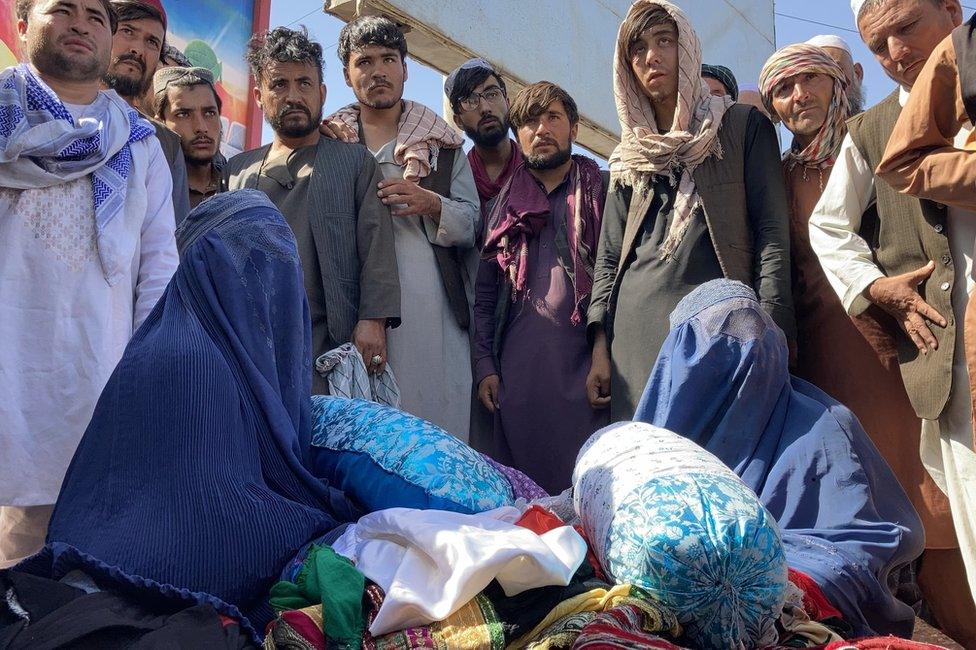
Shagufta at the market in Mazar-i-Sharif. "I am selling my children's finest clothes," she said.
The second-hand market in Mazar-i-Sharif is teeming. Many of those we meet are government employees. Most public sector workers haven't received their salaries for at least two months now. The problem began under the previous government, but now they have no idea when or if they will be paid again.
One teacher has already sold everything she can. "I became a shopkeeper in my own house and sold all my belongings … Whatever I earned I am using to buy food now. Whenever I come here and see the condition of the people I go home and cry." Nonetheless, she says she's still turning up to work every day.
Across the road is Mazar-i-Sharif's main hospital. It's now run by a Taliban official, but his deputy is continuing in the same position he held under the previous government. Staff haven't been paid since the Taliban takeover, with uncertainty over how the ministry of health will be funded, while the current reserve stock of medicine will only last for another month.
The transition of power in Afghanistan ended up being much less violent and bloody than many had feared, but around half the country were already in dire need, and for many now the struggle to survive is getting even harder.
Back in Kabul, we meet a former policeman trying to make ends meet. "It makes no difference to me who's in the government," he says.
He is now selling Taliban flags by the side of the road.
"There's no work around," he says. "What else can I do?"
Additional reporting by Malik Mudasir and Shams Ahmadzai.

You may be interested in
There is anger at the Taliban in Kabul, but others in rural areas welcome the end of a deadly war
Related topics
- Published15 September 2021
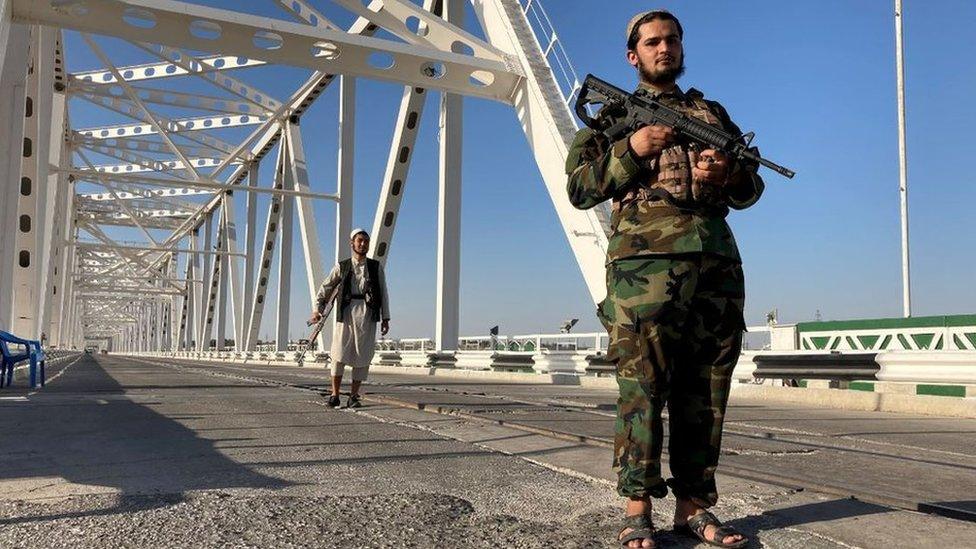
- Published16 September 2021
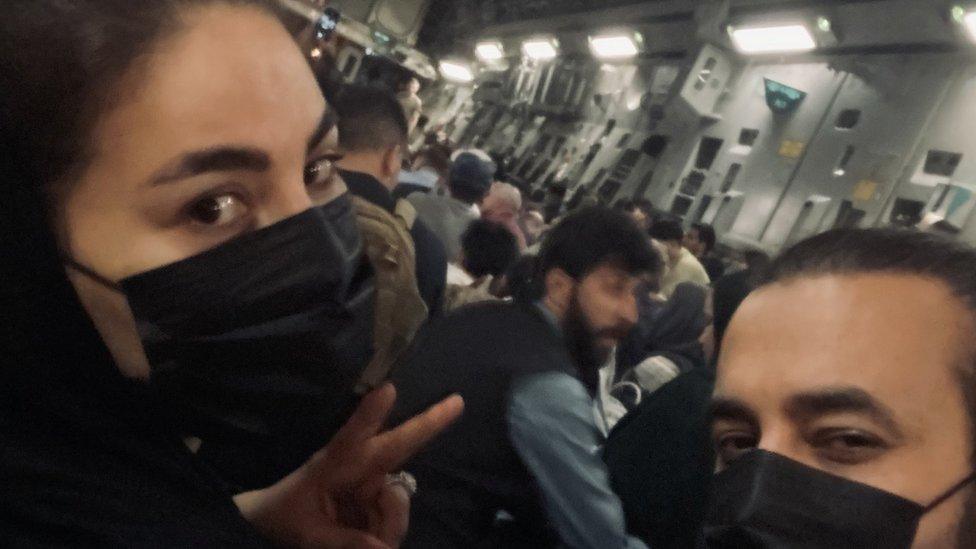
- Published15 September 2021
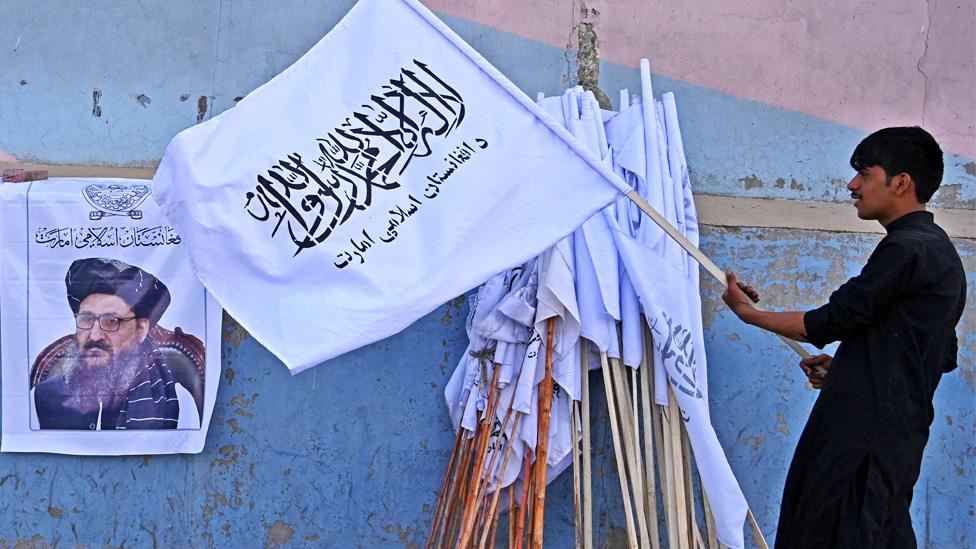
- Published5 September 2021
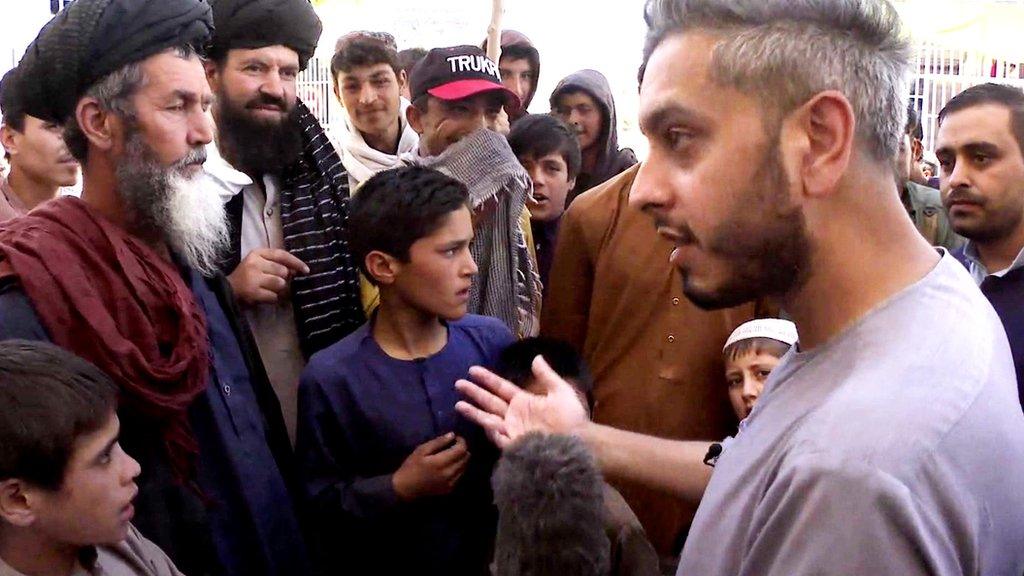
- Published9 September 2021
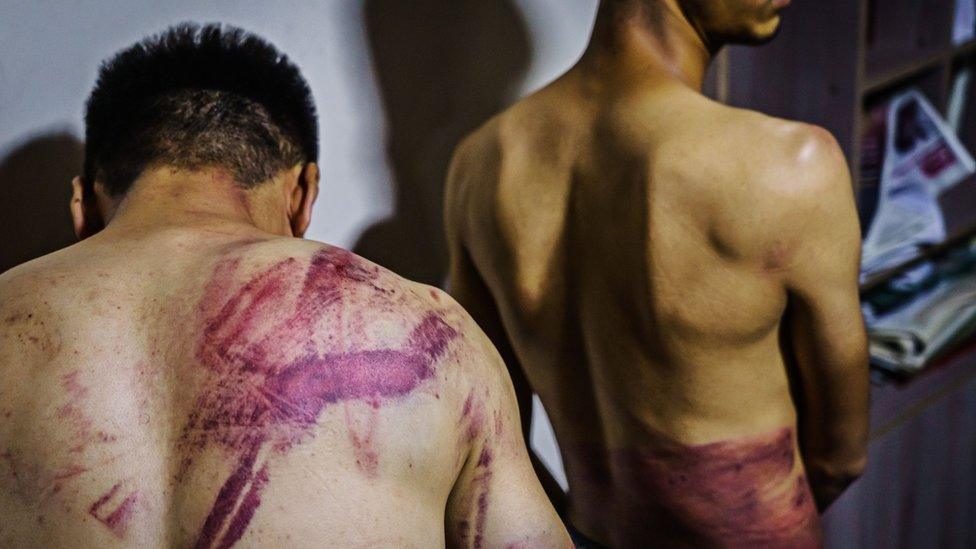
- Published24 August 2021
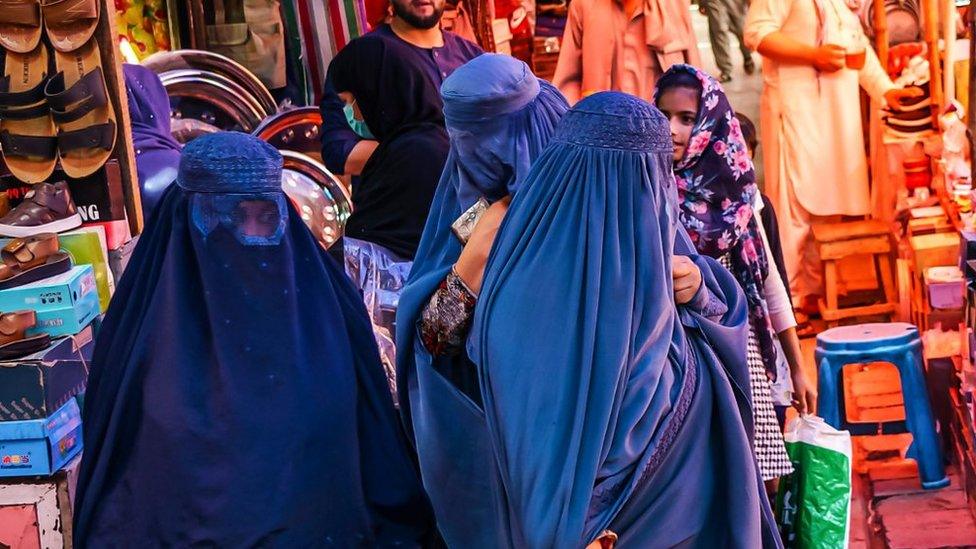
- Published15 August 2021
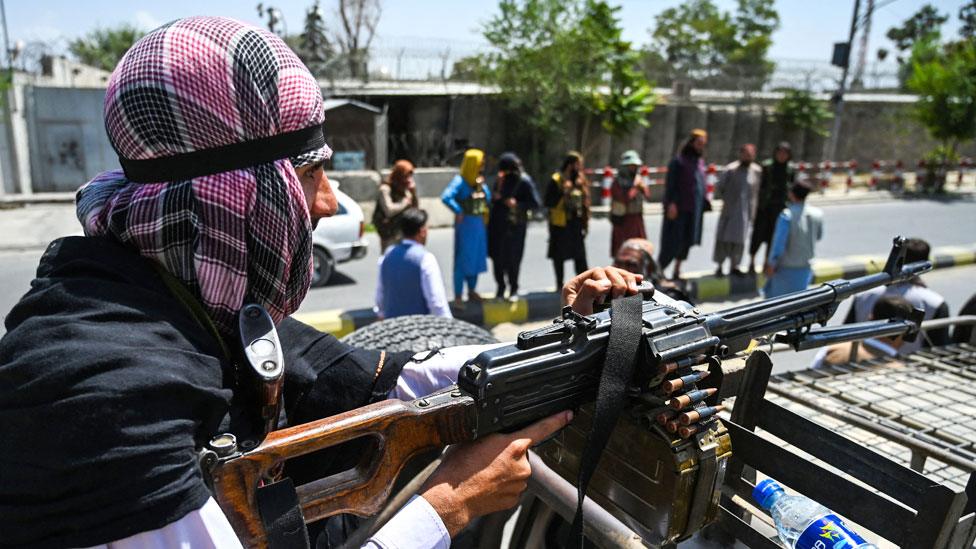
- Published16 August 2021
